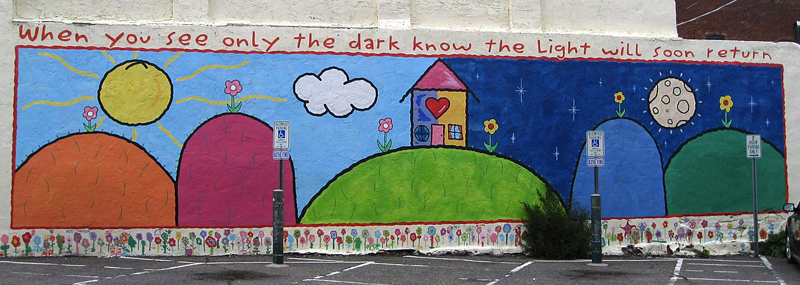written by Heidi Haverkamp
How does it feel to go without the Eucharist, perhaps for weeks – even months – now, with more to come? For the first time in living memory, the majority of Episcopalians, Lutherans, Roman Catholics, and other Christians have no choice but to go without the sacrament, week in and week out, because of the global pandemic. If your diocese is like mine, priests have been asked by the bishop not to celebrate communion at all, not even privately or with their families, because of government orders to shelter in place, prevent large gatherings, and otherwise curb the spread of COVID-19.
When a rector friend of mine asked this same question on Facebook, a thread of comments poured out. Some people said that they missed the Eucharist deeply, longing for it, as one man said, quoting a psalm, “more than the watchman for the dawn.” Another said that going without Eucharist was making this “one of the hardest times of my life.” Many longed for the physical feel and comfort of the sacrament, as one put it: “to be reminded in a physical way of the presence of God in taste, texture, smell.”
Episcopalians are a diverse bunch, as we know, so naturally, the other half of commenters said they didn’t miss the Eucharist much at all. Many confessed what they really missed was being physically in the midst of a worship community. A parish administrator said he’d been so busy trying to manage worship online that he hadn’t had a chance to think about what he did or didn’t miss yet! Some clergy said, more than receiving the Eucharist, they missed speaking the familiar words of the prayers and placing bread into the hands of their people.
Regardless, all of us are missing the experience of the Eucharist, whether of the bread and wine made holy or encountering God in the midst of one another’s physical presence. COVID-19 has deprived us of something precious and sacred, which is hard to spiritually stomach when we are undergoing such stress and suffering in this pandemic.
Some bishops and priests have called this time in the life of our church, “a fast.” A fast is a chosen spiritual discipline. What if, instead of feeling that losing the Eucharist is something just happening to us, we choose this as a fast, out of love for God and our neighbor?
Fasting is not the most appealing of spiritual disciplines these days, but it is one with a long history and many spiritual gifts associated with it. What if these gifts are applicable to us now, too? Here, below, are seven – taken from my own experience as well as from Christian and Jewish tradition – one or more of which I hope may give meaning to your fasting from worship and Eucharist in this uncertain and painful time.
- Sacrificial love: Fasting means giving up something we desire and enjoy for love’s sake; in this case, to protect one another from a lethal virus. Fasting is not deprivation, but something that enlarges our hearts in love and deepens our understanding of who God is in Christ. (John 15:3)
- Mutual love: Fasting is powerful when it is shared. We are in this together, sharing in this fast and this pandemic. If some must refrain, then all will refrain. We are the Body of Christ and members of one another; there shall be no haves and have nots in church. (Rom. 12:5, 1 Cor. 11:20-27)
- Solidarity with the suffering: Fasting is a way for Christians to bear witness to and share in the suffering of the hungry. Going without the Eucharist now can be an act of symbolic sharing in the great suffering of so many through this pandemic. (Matt. 25:40)
- Repentance of sins: Fasting as penance is an ancient Jewish and Christian tradition. Think of this less as self-punishment and more as a full-body lament, confessing our grief and guilt for the inequalities and injustices in our nation made stark by this pandemic. (Joel 2:12-13, Acts 9:9, Isa. 58:6)
- Keeping vigil: Fasting is done in liminal times of waiting and uncertainty. Quarantine and social distancing can feel like a never-ending Holy Saturday. Jesus has descended into hell alongside the suffering in hospitals and nursing homes and has not yet re-emerged. Our altars are empty for now, but we dwell in hope. (Ps. 130)
- Longing for God: In fasting, we remember that what we are truly hungry for is God. The Eucharist sustains us with real presence but is not itself the God we worship or receive. God is always with us, Eucharist or not. (Ps. 62-63, 1 Cor. 10:13)
- Contemplation: Fasting gives us the opportunity to reflect on who we are, who God is, and what is important to us. Fasting is also a way to make more room within us to listen to what God is calling us to be, as individuals and congregations. (Luke 4:1-2)
Fasting from the celebration of the Eucharist in this season of pandemic is “meet and right so to do.” It is a way of telling the truth right now about our world, our lives, and the power of Jesus Christ. It’s not easy – fasting isn’t supposed to be easy – but there are spiritual gifts it brings, even in the midst of great pain and struggle.
May God sustain us through the trials we are enduring. May we keep this fast with love. May we have faith in Resurrection, that, in Christ, death is not the end. May we believe, even when we can’t see, that God can bring new life from a tomb.
The Rev. Heidi Haverkamp is an Episcopal priest, currently self-employed as a writer. She writes most often for The Christian Century and has published two books for Westminster John Knox Press: Advent in Narnia (2015) and Holy Solitude: Lenten Reflections with Saints, Hermits, Prophets, and Rebels (2017).

